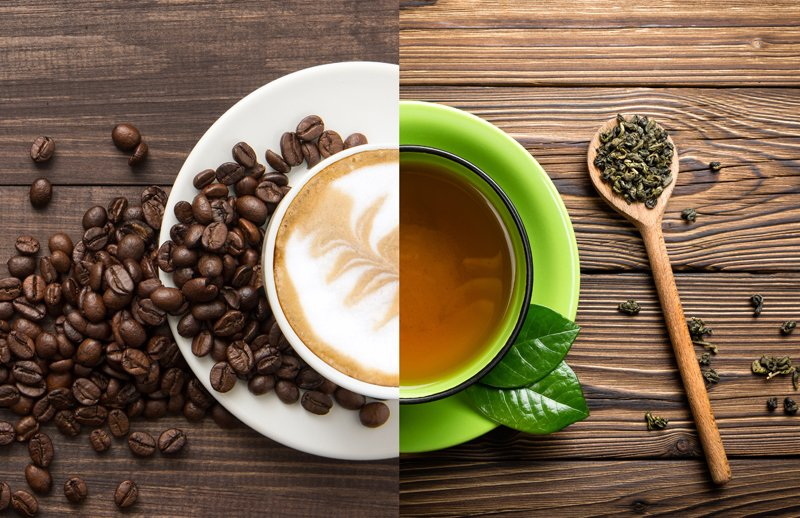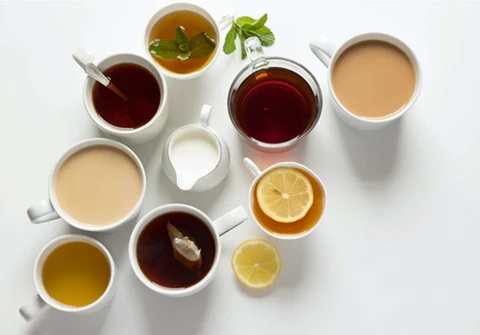Content Menu
● Understanding Green Tea Extract
>> Key Components of Green Tea Extract
● Caffeine Content in Green Tea Extract
>> Breakdown of Caffeine Levels
● Estimating Caffeine in 150 Mg of Green Tea Extract
● Factors Influencing Caffeine Content
>> Comparison Table: Caffeine Content in Different Forms
● Health Implications of Caffeine Consumption
>> Benefits of Moderate Caffeine Intake
>> Risks Associated with Excessive Caffeine Intake
● The Role of Green Tea Extract in Weight Management
>> Mechanisms Behind Weight Loss Benefits
● Combining Green Tea Extract with Other Ingredients
● Choosing the Right Green Tea Extract
● Conclusion
● FAQ
>> 1. How much caffeine is typically found in a cup of brewed green tea?
>> 2. Can I take green tea extract if I am sensitive to caffeine?
>> 3. What are the health benefits associated with green tea extract?
>> 4. Is it safe to consume multiple servings of green tea extract daily?
>> 5. How does the extraction process affect the potency of green tea extract?
● Citations:
Green tea extract (GTE) has gained immense popularity due to its numerous health benefits, including weight loss, antioxidant properties, and cognitive enhancement. One of the most common questions surrounding green tea extract is its caffeine content. This article will explore the caffeine levels in green tea extract, specifically focusing on the amount found in a 150 mg serving.

Understanding Green Tea Extract
Green tea extract is derived from the leaves of the Camellia sinensis plant and is known for its high concentration of beneficial compounds, particularly catechins and caffeine. The extraction process typically involves steeping the leaves in water to isolate these active ingredients, resulting in a concentrated form that can be consumed in capsules or powders.
Key Components of Green Tea Extract
- Catechins: These are antioxidants that contribute to many health benefits associated with green tea, including improved metabolism and fat oxidation.
- Caffeine: A natural stimulant that can enhance alertness and energy levels.
Caffeine Content in Green Tea Extract
The caffeine content in green tea extract can vary significantly depending on several factors, including the brand, extraction method, and concentration of the extract. Generally, green tea extracts can contain anywhere from 15 mg to over 200 mg of caffeine per serving.
Breakdown of Caffeine Levels
- Low Caffeine Extracts: Some brands may offer extracts with as little as 15 mg of caffeine per serving.
- Moderate Caffeine Extracts: Many products provide around 30-50 mg of caffeine per serving.
- High Caffeine Extracts: Certain supplements can contain over 200 mg of caffeine per serving, especially those designed for energy enhancement.
When considering a dosage of 150 mg of green tea extract, the caffeine content can be estimated based on the concentration provided by various brands.
Estimating Caffeine in 150 Mg of Green Tea Extract
To determine how much caffeine is present in a 150 mg serving of green tea extract, we can use typical caffeine concentrations found in various supplements:
- If a green tea extract contains 25 mg of caffeine per 500 mg, then a 150 mg serving would yield approximately
25 mg /500 mg ×150 mg=7.5 mg
of caffeine.
- If another brand contains 100 mg of caffeine per 250 mg, then a 150 mg serving would yield approximately
100 mg/250 mg×150 mg=60 mg
of caffeine.
This variability highlights the importance of checking product labels to understand exactly how much caffeine you are consuming with your green tea extract.
Factors Influencing Caffeine Content
Several factors can influence the amount of caffeine extracted from green tea leaves:
- Type of Leaves: Younger leaves and buds typically contain more caffeine than older leaves.
- Processing Method: The way the leaves are processed (e.g., steamed or pan-fried) can affect their final caffeine content.
- Brewing Time and Temperature: Longer brewing times and higher temperatures generally result in higher caffeine extraction.
Comparison Table: Caffeine Content in Different Forms
| Form | Approximate Caffeine Content |
| Brewed Green Tea (8 oz) | 30-50 mg |
| Green Tea Bags (per bag) | 20-60 mg |
| Green Tea Extract (500 mg) | 25-200 mg |
| Matcha Powder (1 tsp) | 70 mg |
Health Implications of Caffeine Consumption
Moderate caffeine consumption is generally considered safe for most adults. The FDA suggests that up to 400 mg of caffeine per day is unlikely to cause adverse effects for healthy adults. However, individuals sensitive to caffeine may experience side effects such as anxiety, insomnia, or heart palpitations even at lower doses.
Benefits of Moderate Caffeine Intake
- Increased alertness and cognitive function.
- Enhanced physical performance during exercise.
- Potential weight loss benefits through increased metabolic rate.
Risks Associated with Excessive Caffeine Intake
While moderate consumption has its benefits, excessive intake can lead to:
- Insomnia: Difficulty falling asleep or staying asleep.
- Increased heart rate: Palpitations or irregular heartbeat.
- Anxiety: Heightened feelings of nervousness or unease.
- Digestive issues: Stomach upset or acid reflux.

The Role of Green Tea Extract in Weight Management
Green tea extract is often marketed as a weight loss supplement due to its potential to enhance fat oxidation and boost metabolism. Research suggests that catechins in green tea may help increase calorie expenditure and fat burning during exercise.
Mechanisms Behind Weight Loss Benefits
1. Thermogenesis: Green tea extract may promote thermogenesis, which is the process by which the body generates heat by burning calories. This effect can lead to increased energy expenditure.
2. Fat Oxidation: Studies have shown that catechins can enhance fat oxidation during exercise, making it easier for individuals to lose weight when combined with physical activity.
3. Appetite Suppression: Some research indicates that green tea extract may help regulate appetite hormones, potentially reducing overall calorie intake.
Combining Green Tea Extract with Other Ingredients
Many supplements combine green tea extract with other ingredients aimed at enhancing weight loss or energy levels. Common combinations include:
- Caffeine: Often added for its stimulant effects that can further boost metabolism.
- L-Carnitine: An amino acid that may help increase fat oxidation during exercise.
- Garcinia Cambogia: A tropical fruit extract believed to suppress appetite and inhibit fat production.
Choosing the Right Green Tea Extract
When selecting a green tea extract product, consider the following factors:
- Caffeine Content: Choose a product that aligns with your sensitivity to caffeine and your overall dietary intake.
- Purity and Quality: Opt for products that are free from fillers or artificial additives. Look for third-party testing certifications.
- Concentration of Catechins: Higher concentrations may provide more significant health benefits but should be balanced with personal tolerance levels.
Conclusion
In summary, the amount of caffeine in a 150 mg serving of green tea extract can vary widely based on the specific product and its formulation. It is essential for consumers to read labels carefully to understand their exact intake. While moderate consumption is generally safe and beneficial, individuals should be mindful of their overall caffeine intake from all sources to avoid potential side effects.
Green tea extract continues to be a popular choice among those seeking health benefits associated with its antioxidant properties and potential weight management effects. By understanding its composition and how it fits into your lifestyle, you can make informed decisions about incorporating it into your daily routine.

FAQ
1. How much caffeine is typically found in a cup of brewed green tea?
A typical cup (8 oz) of brewed green tea contains approximately 30-50 mg of caffeine.
2. Can I take green tea extract if I am sensitive to caffeine?
Yes, but it is advisable to choose decaffeinated options or products with lower caffeine content if you are sensitive to stimulants.
3. What are the health benefits associated with green tea extract?
Green tea extract may aid in weight loss, improve cognitive function, lower cholesterol levels, and provide antioxidant support.
4. Is it safe to consume multiple servings of green tea extract daily?
While moderate consumption is generally safe for most people, it's best to consult with a healthcare professional if you plan on taking multiple servings daily.
5. How does the extraction process affect the potency of green tea extract?
The extraction process can concentrate beneficial compounds like catechins and caffeine; however, variations in processing methods can lead to differences in potency across products.
Citations:
[1] https://www.livestrong.com/article/186702-how-much-caffeine-is-in-green-tea-extract/
[2] https://www.youtube.com/watch?v=CkdqsIhHEhM
[3] https://www.zhounutrition.com/blogs/the-greatness-files/green-tea-extract-q-a
[4] https://www.elo.health/articles/green-tea-extract-supplements/
[5] https://www.healthline.com/nutrition/10-benefits-of-green-tea-extract
[6] https://health.clevelandclinic.org/green-tea-extract-a-better-way-to-boost-energy-or-not
[7] https://www.caffeineinformer.com/caffeine-content/green-tea-extract
[8] https://examine.com/supplements/green-tea-extract/
[9] https://www.medicalnewstoday.com/articles/269538
[10] https://www.reddit.com/r/chemistry/comments/3gt1zo/how_much_caffeine_in_green_tea_extract/
[11] https://www.medicalnewstoday.com/articles/269538
[12] https://www.healthline.com/nutrition/caffeine-in-green-tea
[13] https://pubmed.ncbi.nlm.nih.gov/16506807/
[14] https://pmc.ncbi.nlm.nih.gov/articles/PMC8406948/
[15] https://pmc.ncbi.nlm.nih.gov/articles/PMC3649093/
[16] https://www.ncbi.nlm.nih.gov/books/NBK299060/
[17] https://www.sugimotousa.com/blog/green-tea-vs-coffee-everything-you-need-to-know
[18] https://pmc.ncbi.nlm.nih.gov/articles/PMC7098939/
[19] https://www.youtube.com/watch?v=Q8gBjZ5e3Bs
[20] https://pmc.ncbi.nlm.nih.gov/articles/PMC4307170/
[21] https://cytomatrix.ca/products/green-tea-extract-90-v-caps/
[22] https://www.youtube.com/watch?v=RIbff5iD0GQ
[23] https://www.youtube.com/watch?v=my7FIaS1mGQ
[24] https://www.healthline.com/nutrition/10-benefits-of-green-tea-extract
[25] https://www.hotbot.com/answers/how-much-caffeine-in-green-tea
[26] https://www.webmd.com/drugs/2/drug-76714/green-tea-leaf-extract-oral/details
[27] https://pmc.ncbi.nlm.nih.gov/articles/PMC10930107/
[28] https://www.republicoftea.com/blog/tea-library/tea-and-caffeine/tl-039/






























